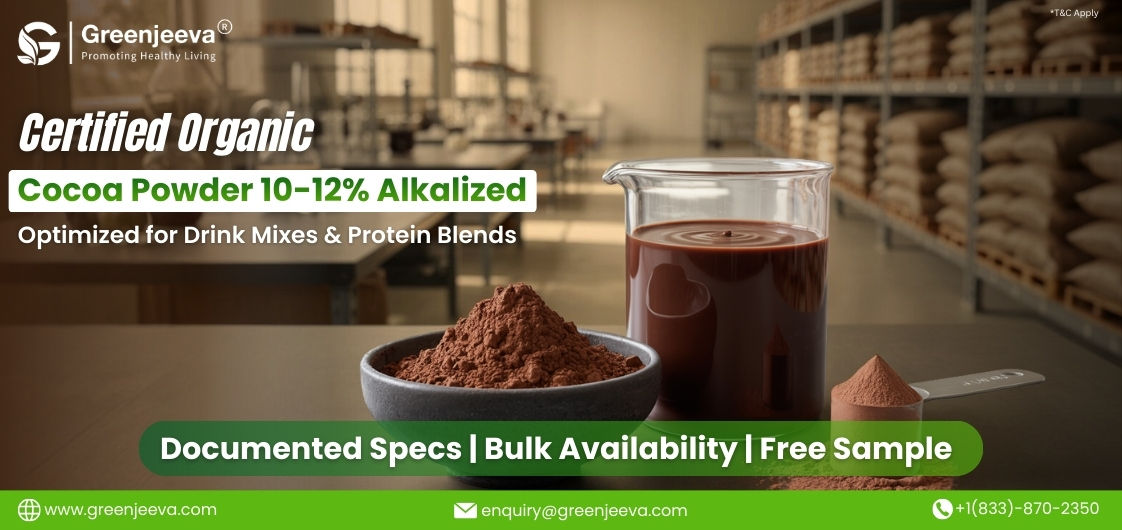Formulating with Chicory Root Powder: Achieving the Perfect Flavor and Texture

The chicory root powder is being adopted in the food and beverage industry for its unique functional and sensory attributes. This adaptable ingredient provides natural fiber, prebiotics, and a gentle bitterness that can enhance pre-existing flavors. However, to achieve taste and texture perfection in your final product when using chicory root powder entails several factors that must be put into consideration.
Opening Chicory’s Potential:
Here are the main points to consider when formulating products with chicory root powder:
Flavour Profile: Slightly bitter-flavoured chicory powder. This bitterness can complement Flavors such as coffee, chocolate, or roasted nuts but can also clash with delicate ones.
Texture: Acting as both a thickening agent and a bulking agent, chicory root powder is useful in low-fat formulations or adds creaminess to beverages. However, too much of it will result in grittiness. Play around with particle sizes depending on your desired end texture; finer grinds offer smoother consistencies.
Sweetness: Inulin found in chicory root powder adds mild sweetness due to this prebiotic fiber content. This again allows formulation of reduced sugar formulations that never lose their taste value. Thus, remember that the overall sweetener profile should be adjusted since the sweetness level of inulin may not be so high compared to sucrose.
Tips for Formulation Success:
Selecting the Right Chicory Root Powder:
Consider what flavors you want to achieve because lighter roasts give lesser bitter tones while darker ones resemble coffee flavors.
Choose a grind size accordingly. For making beverages use fine grinds whilst coarse grinds go well with bakery items.
Moreover, think about the other ingredients that you will mix it with to reach a more complex taste, for instance: chocolate, caramel, and roasted nuts.
Balancing Bitterness:
There are natural sweeteners such as stevia or monk fruit that can cover chicory root powder’s bitterness.
Mix in chocolate, caramel, or roasted nuts that go with it to obtain an intricate flavors.
Formulating with Chicory in Different Applications:
Beverages: In coffee alternatives, chicory powder is frequently used for body and slight bitterness. It could also be added to functional drinks because of its prebiotic benefits. Regarding the application consider introducing it along with associated flavours and adjusting sweetness accordingly.
Baked Goods: Fiber may be added by using chicory root powder in bakery products aside from reducing fat content. However, texture may also be affected. Adjust the ratios of flour and fats while experimenting with different binders so that you achieve your desired outcome.
Dairy Alternatives: Plant-based yogurts and milks can derive their body and mouthfeel from containing chicory root powder. Be mindful of potential interactions with other thickeners or stabilizers.
Snacks: Chicory can add a subtle bitterness and fiber content to healthy snack bars and energy bites.
Also Read More: Gelatin Alternatives for Vegetarian and Vegan Products
Points to Consider:
Roasting Matters: The degree of roasting affects the taste profile of chicory root. Lighter roasts have more vegetal bitterness, while darker ones develop deeper flavors like caramelization. Therefore, go for what complements your objective well from these choices about roast.
Source Matters: The quality and origin of chicory root powder can affect flavor and functionality. Opt for reputable suppliers who offer consistent, high-grade products.
By understanding these factors as well as following these tips when working with Chicory Root Powder in formulations, one will feel comfortable enough to do so. Through trial and error, however; one can easily produce tasty functional foods/beverages that match the rising trend among consumers for healthier flavorsome options.
For customers looking for organic and conventional raw ingredients with same-day shipping in and around Canada, visit Green Jeeva Canada.
**The Food and Drug Aministration has not evaluated these statements. This product is not intended to diagnose, treat, cure, or prevent any disease.**


.jpg)



